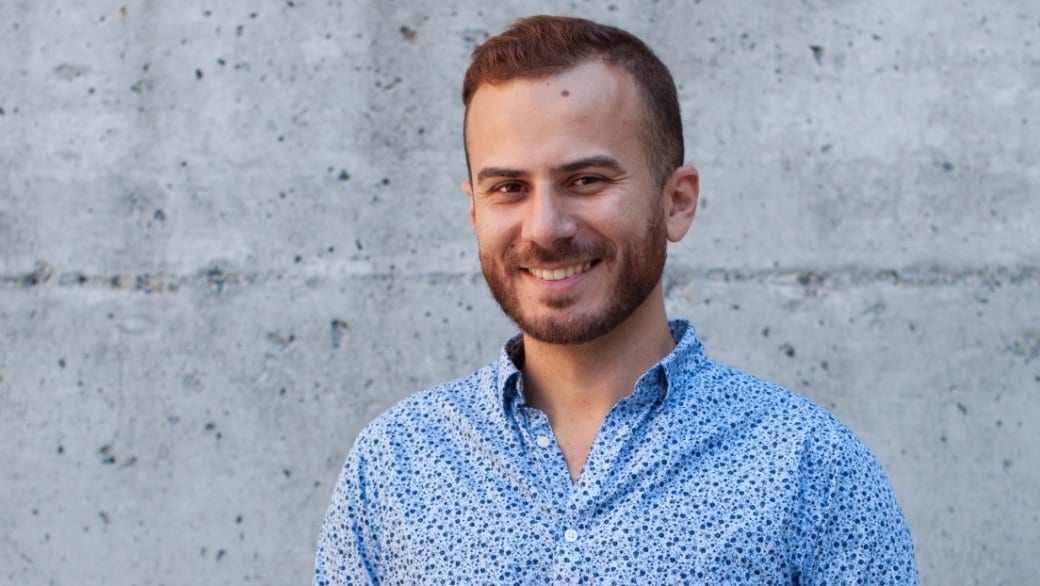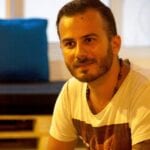I woke up the morning after the US election feeling like a bus had crashed into my body, leaving me scattered and unrecognizable.
For the past 500 days, I had found Trump amusing — like a slow-motion video of a train wreck. Then, against all odds and against human decency itself, Trump prevailed on Nov 8 to become the president-elect, an outcome that left me pulling at my hair in horror.
I briefly tried to reassure myself: I live in beautiful British Columbia in progressive, liberal Canada. Plus, neither the Republican nor the Democrat candidate would have made any major changes in the way the US is handling the situation in my birthplace of Syria. So, really, America, go ahead and vote for Trump; vote for Howard the Duck for all I care.
Then I reminded myself that when America goes right, the whole world goes right. I reminded myself that US political influence leapfrogs borders, and empowers politicians like Conservative leadership candidate Kellie Leitch even in Canada.
I also reminded myself that clinging to the view that “this won’t affect me personally” is the main reason why 49 percent of eligible voters in the US didn’t bother to cast their ballots. Not because they didn’t care exactly, but because they didn’t care enough to protect the rights of the marginalized, the LGBT community, the immigrant and refugee populations, or the African-American and Latinx communities.
The third presidential debate in October was particularly sickening. The candidates’ exchange felt unintelligent, unworthy of the magnitude of the office being sought. It felt like an argument between an unruly child and his wisecracking mother.
“[Clinton]’s taking in tens of thousands of Syrian refugees, who probably in many cases — not probably, who are definitely in many cases — ISIS-aligned,” Donald Trump said, and my blood boiled.
“And we now have them in our country,” he went on, “and wait until you see — this is going to be the great Trojan horse. And wait until you see what happens in the coming years.”
This plants fear in my heart; my many different identities are shaking within me, scared.
The Syrian refugee in me is worried: I might be considered ISIS-aligned, the same terrorist group that I ran away from, that forced to leave my country.
The person of colour in me is terrified: should I shave my beard? Should I hide behind my paler skin and just pretend to be white to avoid being singled out?
The queer man within me is freaking out: Trump’s vice-president is Mike Pence, who thinks that HIV funding is better spent on gay conversion therapy.
Even my last name could hurt me. I carry my name with pride, yet I know it will make border guards assume I’m a Muslim (I’m not) and put me through their “random checks.” But my name represents my upbringing, it’s part of my journey.
My intersectionality, the complex identity I carry as I merge all of these identities, might become a bull’s-eye target on my head.
I’m a queer Syrian refugee person of colour of Muslim origins. I’m Trump’s worst nightmare.
But within a few hours later, my fear turned to pride.
I’m proud of being queer: it’s an identity I carry with hope, it reflects the love I have, a love that is stronger than homophobia and more powerful than hate. A love that remains within me and guides me through my life’s journey and makes me a better, stronger person.
I’m proud of being Syrian: my culture and heritage are beautiful, stunning, full of stories of our amazing history. I come from the oldest known continuous civilization in human history, and Damascus — my city of birth — is the oldest inhabited city in the world.
I’m proud of being a person of colour: my skin color is beautiful, turning golden in summer. My shared experiences with other people of colour connect us, and at the same time allow us to celebrate our differences.
I’m proud of my Muslim heritage: while I don’t consider myself a Muslim, I grew up recognizing the beauty in Islam, the way it describes the world around it, the way it differentiates between right and wrong. I do see the barbaric ways many so-called Muslim extremists use Islam, but the religion itself — deep down — is a peaceful practice of connection with a higher deity.
I’m proud of my experience as a refugee: it is a medal of honour I carry on my chest. It says I managed to overcome so many challenges, crossing oceans and mountains to arrive in Canada where I seek a better future for myself and strive to give back to a society I am now a part of.
I’m proud to be Trump’s worst nightmare in one human being. If only I were also also half-Mexican, I’d be his kryptonite.
The only way for me to feel powerful today is to live my life in the faces of Trump supporters — to be my full, authentic self, and to keep on demanding rights for all the communities I belong to.
I will be loud and obnoxious, and I will be direct and honest. I will offend and take sides. I will be as intense as I can, because that’s the only way forward I see for our work against Trump and the likes of Trump here in Canada — to be truthful and to be our ourselves.
Repeat after me: Intersectionality is a beautiful thing. Now say it louder: Intersectionality is a beautiful thing. Now whisper it to yourself, and live your life to the fullest, celebrating who you are, and enjoying the fact that you, too, could be a nightmare for Trump.


 Why you can trust Xtra
Why you can trust Xtra


